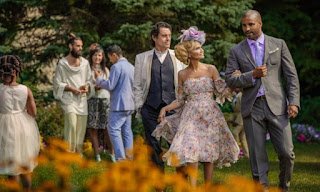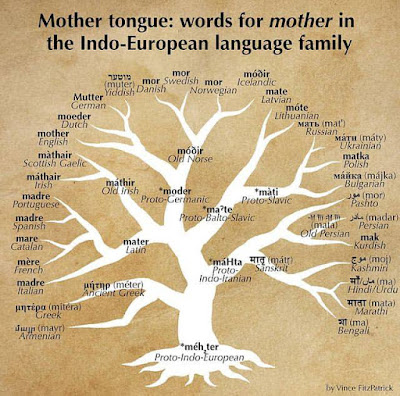What Makes Media Religious?
Okay, this might be a bit out there, but I have too much time on my commute to let my mind wander. I was thinking about religion in media. I mean books, television, and film. This might not be the same everywhere, but here the predominant culture has a heavy christian influence in media since it is the religion of the majority of people in Canada. Of course our media is also heavily influenced by America and also by England. This isn’t a rant about that though. I am much more interested in what makes media religious.
Obviously, the Bible is a religious text. I don’t know if I would think of it as media, but I guess technically it is. So that is some sort of baseline for what is definitely religious in the form of a book. Other media is very intentionally and overtly religious as well. Let’s see…. Jesus Christ Superstar. The Shack. Noah. … I am blanking, but there are lots. (This is going somewhere, I promise.) After that it is a sliding scale of what is religious in media. For example The Lion, the Witch, and the Wardrobe is religious but that might not become clear until you get to the end of C.S. Lewis’s 7 part series. Harry Potter is also religious but that is mostly reflected in the books by the fact that Hogwarts celebrates all the christian holidays. It becomes more clear when you see outside of the Harry Potter series how J. K. Rowling feels about the trans community, which seems to be very much determined by her own faith.
So this leads us into a very interesting series of questions about what exactly makes media religious. Also of note is religious parody, for example Sister Act.Is this religious media if it is meant to make fun of the religion portrayed? Who determines this? Is it the creator and their intent or is it the consumer that decides?
I used christian media above to show the scale of what we are dealing with because there is just more content to talk about, but it applies to any religion really. However, in heathenry (and paganism more broadly) I find there are further complicating factors. For one, we don’t have any book similar to the bible on that end of the spectrum. People can argue the Eddas or maybe the Havamal for heathenry, but that leads us into another grey area. Admittedly the only people I can think of who would read the Eddas are either pagan, students, or scholars. (Or some mixture of the 3.) I wouldn’t consider them scripture though. And most *Nordic Mythology that people are familiar with in mainstream media is based on the Eddas. All those retellings of the Lore as Mythology are well known to people outside of paganism and in many cases date back before modern heathenry. So is mythology religious media? And how do we decide if something is religious in paganism when people are familiar with these mythologies as just stories but without any religious context? People use these stories all the time with no connection to them.
Let’s look at the most glaring example… Marvel. I mean they took Nordic Mythology and ran with it, to the point it is almost a new story altogether. So is the story of Thor in the Marvel universe religious media? I would say no.
Let’s look at something else., American Gods by Neil Gaiman. Is this religious media? It doesn’t really matter if you have only seen the TV series based on his book, they are similar enough it doesn’t change my point. I am on the fence about American Gods as a portrayal of heathenry in the media. Neil Gaiman is not, that I know of, pagan. I don’t think he is religious at all and he has a very complicated religious upbringing. What I am wondering is, does that matter? Does the creator of the media have to follow the religion that is being attributed to a certain piece of media in order for it to be religious? I would say American Gods has some very pagan undertones. It explains perfectly some very pagan ideas. I mean it also portrays Odin as a really big asshole, but I am not sure that takes anything away from that argument. The pagan gods are not perfect. They make mistakes and have character flaws. Neil Gaiman’s portrayal of Odin might be a bit of an exaggeration, but it is not a huge stretch of imagination for most heathens. I am sure that American Gods was meant as commentary on religion in general, but it really works as pagan or heathen religious media.
So that really begs the question... What exactly makes media religious? Is it the creator’s intent? Is it the creator’s bias or background? Is it what the consumer takes from it? Is it how the majority of people perceive it? Or how a specific community perceives it? I don’t know the answer, but I think it is well worth looking into because the reality is that most media is decidedly not heathen, so if we do find heathen (or at least pagan) content it is to be celebrated. It is like a tiny oasis in a sandstorm of religious imagery that doesn’t fit with our worldview. As such we want to be able to distinguish it quickly and be able to enjoy it sooner.
*If you were confused by why I am using Nordic instead of Norse, you should check out the recent blog by Mathias Nordvig here:
https://nordicmythologychannel.com/2021/04/09/norse-must-die/
Photo Source:
American Gods. Season 1. Episode 8.



